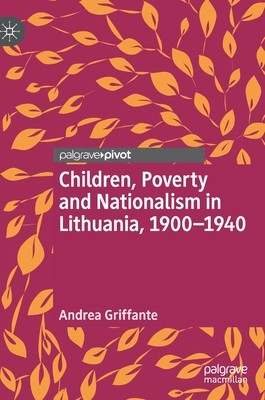
- We will send in 10–14 business days.
- Author: Andrea Griffante
- Publisher: PALGRAVE PIVOT
- ISBN-10: 3030308693
- ISBN-13: 9783030308698
- Format: 14.8 x 21 x 1.1 cm, hardcover
- Language: English
- SAVE -10% with code: EXTRA
Children, Poverty and Nationalism in Lithuania, 1900-1940 (e-book) (used book) | bookbook.eu
Reviews
Description
This book discusses the emergence of care for orphaned, abandoned and poor children in Lithuania from the early twentieth century to the beginning of the Second World War. In particular, it focuses on how such practices were influenced by nationalist and political discourses, and how orphanages became privileged institutions for nation building. Emerging during the humanitarian crisis following the First World War, the Lithuanian orphaned and destitute children's assistance network had an eminently ethno-national character, and existed in parallel with, and was challenged by, Polish poor child assistance institutions. By analysing such care for children, this book explores concepts such as the nation state and citizenship, as well as the connections between poverty, childhood and nationalism.
EXTRA 10 % discount with code: EXTRA
The promotion ends in 17d.14:09:01
The discount code is valid when purchasing from 10 €. Discounts do not stack.
- Author: Andrea Griffante
- Publisher: PALGRAVE PIVOT
- ISBN-10: 3030308693
- ISBN-13: 9783030308698
- Format: 14.8 x 21 x 1.1 cm, hardcover
- Language: English English
This book discusses the emergence of care for orphaned, abandoned and poor children in Lithuania from the early twentieth century to the beginning of the Second World War. In particular, it focuses on how such practices were influenced by nationalist and political discourses, and how orphanages became privileged institutions for nation building. Emerging during the humanitarian crisis following the First World War, the Lithuanian orphaned and destitute children's assistance network had an eminently ethno-national character, and existed in parallel with, and was challenged by, Polish poor child assistance institutions. By analysing such care for children, this book explores concepts such as the nation state and citizenship, as well as the connections between poverty, childhood and nationalism.


Reviews